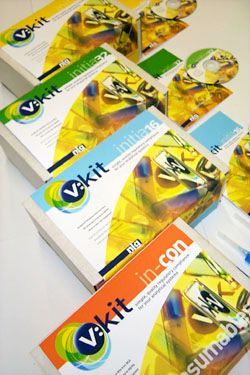Validation Kits
Product release from NLG Analytical...

Cut the cost of achieving regulatory compliance with full traceability by up to 90%.
How? With v:kit, a new idea to revolutionize the way you validate your analytical equipment.
A single box containing all the procedures, documentation and materials needed to perform OQ/PQ test on various instruments.
Kits are available for HPLC and GC with full traceability and without contravening 21 CFR Part 11 compliance regulations.
HPLC systems: isocratic and gradient pumps, UV/vis detectors (including PDAs), fluorescence detectors, refractive index detectors, column thermostats and autosamplers.
GC systems: including auto-injectors, headspace samplers, FIDs ECDs and TCDs.
Whether performing your regular validation checks, or for pre- or post-maintenance tests, v:kit offers you cost-effective, credible regulatory compliance for all your analytical systems.
v:kits allow a common validation standard across all your equipment, in all locations.
Tel: +44 (0) 1625 574633
Fax: +44 (0) 1625 574699
Altering Capillary Gas Chromatography Systems Using Silicon Pneumatic Microvalves
May 5th 2025Many multi-column gas chromatography systems use two-position multi-port switching valves, which can suffer from delays in valve switching. Shimadzu researchers aimed to create a new sampling and switching module for these systems.
Studying Cyclodextrins with UHPLC-MS/MS
May 5th 2025Saba Aslani from the University of Texas at Arlington spoke to LCGC International about a collaborative project with Northwestern University, the University of Hong Kong, and BioTools, Inc., investigating mirror-image cyclodextrins using ultra-high performance liquid chromatography–tandem mass spectrometry (UHPLC–MS/MS) and vibrational circular dichroism (VCD).

.png&w=3840&q=75)

.png&w=3840&q=75)



.png&w=3840&q=75)



.png&w=3840&q=75)



